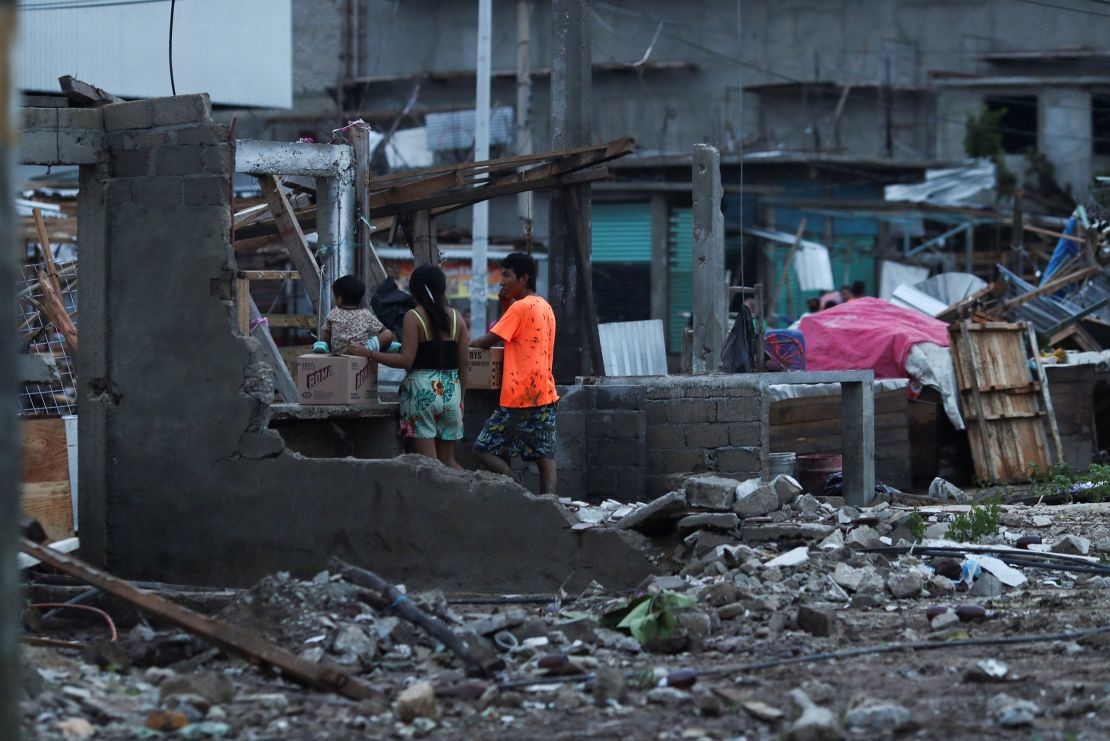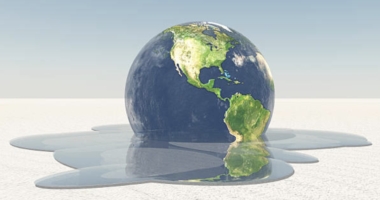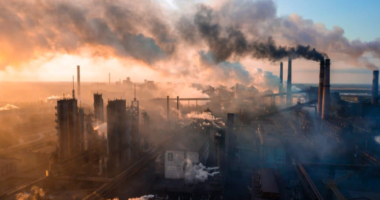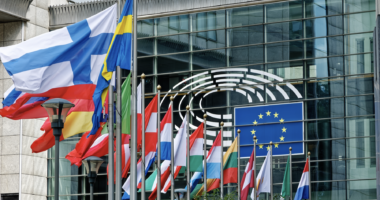Climate, Health and Equity Brief
Earth under siege, a shocking hurricane, and the impacts of eco-anxiety
October 30, 2023
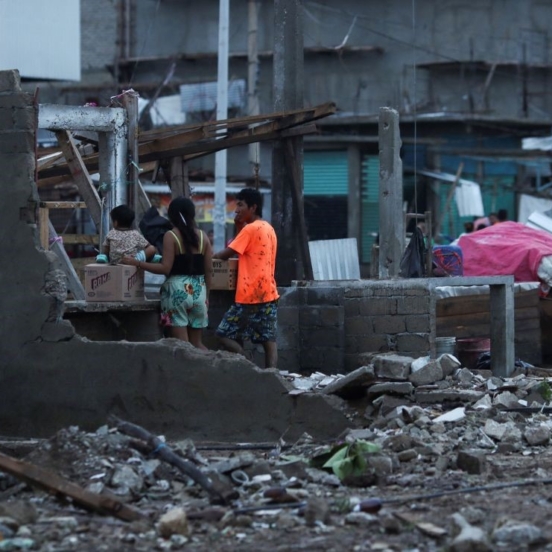
The Climate, Health & Equity Brief is GMMB’s take on the last two weeks’ news on the current impacts of climate change. If you haven’t subscribed yet, you can do so by clicking here.
Hot Topic: Uncharted territory. The 2023 State of the Climate report came out this week, and in it, scientists underscore a frightening reality: Earth broke “extraordinary” records this year, and there has been “minimal progress” by humanity to stop the impacts of human-caused climate change. The authors found that Earth experienced 38 days with temperatures more than 1.5°C (2.7°F) above pre-industrial levels, and July 2023 was likely the hottest month in the last 100,000 years.
The unrelenting frequency and intensity of heat waves threaten widespread, deadly consequences in some regions. A new report found that if global temperatures increase by just 1°C (1.8°F) above current levels, billions of people could face combinations of heat and humidity that exceed survivability limits. Populations in the Middle East and South Asia are predicted to face the worst conditions, but in the higher end warming scenarios, oppressive and “potentially lethal” conditions could spread to many other areas, including U.S. Midwestern states.
With increasing heat come the massive, unpredictable storms that result from heating ocean water and the ability of warmer air in the atmosphere to hold—and release—far more moisture. Hurricane Otis, which this week became the strongest storm in history to slam into Mexico’s Pacific coast, embodied the challenge—and shocked scientists. The storm’s “explosive” intensification turned it from a Category 1 storm to a Category 5 in just 12 hours, reaching 165 mph just as it made landfall in Acapulco. The storm took at least 27 lives and left the devastated region in chaos, with Acapulco residents having little to no access to water, food, or electricity.
Unsurprisingly, such record-breaking climate events are taking a serious toll on our mental health. A new study from the American Psychological Association and ecoAmerica found that impacts are particularly acute for kids and teens. Natural disasters can lead to PTSD in these groups, they found, and persistent problems like excessive heat, drought and poor air quality can increase the risks of anxiety, depression, bipolar disorder, aggression, cognitive impairment, and more. Therapists—seeing a disturbing uptick in climate anxiety—are increasingly tailoring their approaches to help clients cope with feelings of fear, anger, and hopelessness, and to understand that those are rational responses to a world that increasingly feels scary and uncertain.
Human Health
A new report from ecoAmerica and the American Psychology Association has underscored that climate-change-related extreme weather events can trigger or exacerbate mental health issues for kids and teens, including PTSD, anxiety, depression, bipolar disorder, and additional impacts. (CNN)
Billions of people are at risk of temperatures exceeding survivability limits if global temperatures increase by 1°C (1.8°F) or more above current levels, a new study published in PNAS warns, with the Middle East and South Asia enduring the worst conditions, but potentially lethal combinations of heat and humidity possibly spreading to other areas, including U.S. Midwestern states. (Axios)
Amid record-high ocean temperatures in the North Atlantic, scientists have identified 40 “flesh-eating” bacterial infections in Florida this year, ten of which were fatal, with scientists warning that due to warming waters, the bacteria could spread to every coastal U.S. state by 2040. (The Telegraph)
As climate change becomes more immediate and pervasive, therapists are increasingly helping patients deal with climate-related anxieties and fears, emphasizing the importance of validating feelings of worry and despair while providing coping strategies to navigate ongoing environmental challenges. (The New York Times)
Countries experiencing both armed conflict and climate change find themselves in a dire predicament as conflict exacerbates their climate vulnerability, leading to resource disputes and creating a dangerous feedback loop, with the Gaza Strip serving as a striking case in point. (France 24)
Planetary Health
Hurricane Otis killed at least 27 people in the Mexican state of Guerrero, making landfall as a Category 5 major hurricane after undergoing extremely rapid intensification and increasing its sustained wind speed by 110 mph in less than 24 hours. (ABC News, Axios)
Changes in climate and land use have led to a dramatic reduction in the amount of insects pollinating key tropical crops, leading to potential crop reductions, especially for coffee and cocoa, a new study finds. (AP News)
A new study has determined that changes to melting sea ice in the Arctic have impeded access to food sources for the gray whale, causing more than 680 of the massive creatures to wash up or be found dead along U.S. Pacific shores since 2019. (ABC News)
Equity
Climate funding promises to developing countries are falling far short, as financial support from wealthy nations lags due to political infighting, bureaucratic snags and debates over rules to expedite aid from development banks and private donors, causing years of delays. (The Washington Post)
As part of a rule overhauling the Community Reinvestment Act, major banks are being encouraged to invest in low-income neighborhoods to help them prepare for climate-related disasters, a move which could prompt billions of dollars to be directed toward climate adaptation in key regions in light of increasingly extreme weather events. (POLITICO)
With the average number of heat-related deaths in the U.S. rising 95 percent between 2010 and 2022, the Climate Health Equity for Community Clinics Program has partnered with 10 clinics in Florida, Louisiana, and Arizona to train doctors in disadvantaged areas to fight heat-associated illnesses and death. (Grist)
The EPA is investing $128 million in 186 community-driven environmental justice projects aimed at improving the health, equity, and resilience of disadvantaged communities while setting a blueprint for local solutions that can be applied across the nation. (American City & County)
Politics & Economy
A new report by the International Energy Agency (IEA) finds that by implementing immediate and targeted methane cuts, the fossil fuel industry could prevent one million premature deaths, avert over 90 million metric tons in crop losses and save $85 billion in labor lost to extreme heat conditions. (Bloomberg)
A new EU climate rule will require major U.S. companies that trade on European stock exchanges to report their carbon emissions, climate risks, and strategies to counter the damage starting in 2025. (POLITICO)
A group of Republican-led states have asked the Supreme Court to block the implementation of Biden’s “good neighbor” pollution rule—a regulation that cuts down on harmful smog and pollution from power plants and heavy industries that float across state lines—due to concerns about its economic impact. (CNN)
Amazon joins Microsoft, Walmart, Apple, and other major companies in pressuring suppliers to step up their decarbonization efforts, requiring supply chain partners and third-party sellers to release their emission data and share their progress on climate goals starting in 2024. (CNBC)
In the largest oil merger in more than two decades, Exxon announced plans to buy Pioneer Natural Resources for $60 billion—a move that will double oil production in the Permian Basin and underscores Exxon’s confidence in continued future fossil fuel output. (The Guardian)
Action
President Joe Biden announced he would award $7 billion in federal grants to seven regional clean hydrogen hubs to increase clean hydrogen production and support tough-to-decarbonize industrial industries like steel and cement. (Reuters)
The Department of Energy has announced a $3.5 billion upgrade to America’s electric grid in an effort to move towards greater renewable energy capacity as the U.S. continues to experience greater weather-related outages as a side effect of climate change. (Grist)
As climate change fuels record-high temperatures, five states – California, Oregon, Washington, Colorado, and Minnesota – have enacted life-saving heat-related protections for workers, with other regions across the country fighting to pass similar bills. (The Guardian)
Life as We Know It
A new study revealed that rising temperatures in regions that grow aroma hops, a key ingredient in beer that requires a specific climate to grow, will reduce overall production and quality of hops, leading to more bitter beer. (ABC News)
A recent report reveals that snow season at Lake Tahoe will likely shorten between one and three months by the end of the century due to rising temperatures around the lake that will prevent snowfall. (San Francisco Chronicle)
Kicker
Looking to take climate action but don’t know where to start? Check out this helpful resource guide that includes opportunities for education, volunteering, activism and more.
Life on planet Earth is under siege.
– William Ripple, lead author of the 2023 State of the Climate Report
The GMMB Climate, Health & Equity Brief would not be possible without the contributions of the larger GMMB team—Aaron Benavides, Stefana Hendronetto, Nikki Melamed, Sharde Olabanji and Marci Welford. Feedback on the Brief is welcome and encouraged and should be sent to [email protected].

